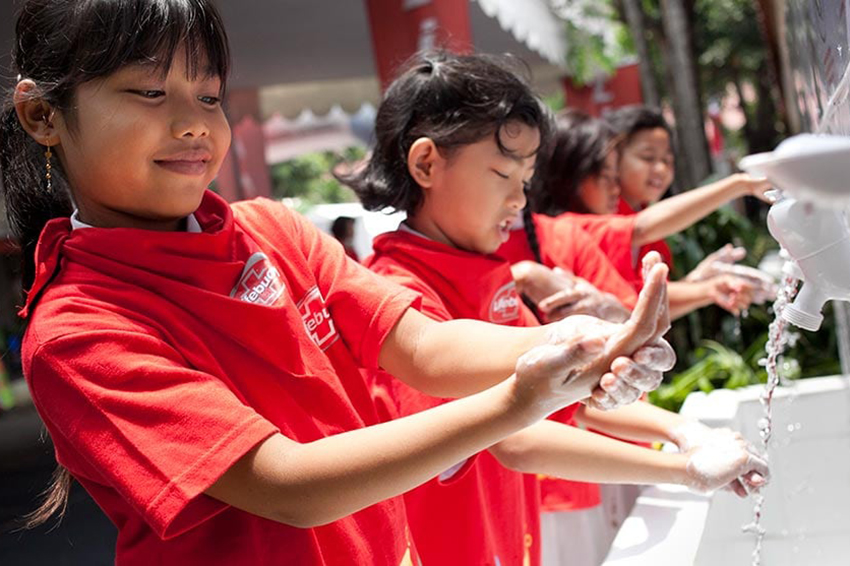
Photo Credit: Unilever/Lifebuoy
The novel coronavirus (COVID-19) pandemic is creating a humanitarian and economic crisis. Amid the chaos, though, lies a simple preventive practice: handwashing with soap. During times of crisis, we must remember that handwashing with soap is a powerful tool to combat infectious diseases like COVID-19, and it is crucial for us to sustain handwashing practices and innovations once the pandemic has ended. Private-sector engagement, especially through public-private partnerships like the Global Handwashing Partnership, can play a significant role in developing immediate and long-term infectious disease solutions.
Creating immediate solutions
Both the public and private sectors have a role to play in the ongoing COVID-19 response. As a public-private partnership, the Global Handwashing Partnership has the unique ability to ensure joint programming with joint responsibility, leveraging both the public sector’s big ideas and policies and the private sector’s resources and strong supply chain and communications expertise.
For two decades, the Global Handwashing Partnership has served as a global advocate and knowledge hub for handwashing and hand hygiene programming. It brings together the collective expertise, ideas and resources of the public and private sectors to promote sustainable handwashing behavior change globally.
Harnessing the power of private-sector brands to communicate important messages can achieve immediate impact. Most recently, the Global Handwashing Partnership worked in tandem with Colgate-Palmolive, Essity, Proctor & Gamble and Unilever to co-develop key messages and communications materials using a co-creation process. By aligning with partners in the public sector, like the U.S. Agency for International Development (USAID), UNICEF, the World Bank and others, private businesses played a major role in quickly sharing solutions with households, frontline health workers and policymakers.
Accelerating action on a local level for long-term solutions
Frontline health workers overseeing the pandemic response are dealing with a full range of issues and competing priorities. Given the scale of the COVID-19 pandemic, this is a time for urgent and localized action. While the Global Handwashing Partnership has seen success with its global efforts, the facilitation of local-level partnerships will help to fill coordination gaps and ensure swift action among affected countries.
Setting up a public-private partnership often takes a great deal of time and requires major investments at all levels; however, processes may be accelerated to rapidly respond to the context. Once established, a partnership can leverage support for individual activities and provide a foundation for long-term collaboration for localized action. The Global Handwashing Partnership and its partners are actively working to develop guidance documents to support the initiation of such partnerships.
The power of partnerships
Collective action yields the greatest power and influence. Aligning efforts – whether for the current pandemic or other situations – can provide more impact than any single organization or business can achieve on its own. As the above activities show, private-sector companies are stepping up to build resilience across their value chains and work with partners to scale up innovative solutions. Broad coalitions that connect community networks, such as schools and religious organizations, are also necessary in times like these. Such partnerships provide a mechanism to amplify messages and strategies to reach all individuals, even the most vulnerable.
Now more than ever, we are reminded of the basic fact that we are all connected. Collective action, from public- and private-sector partners, provides an opportunity to create sustainable solutions for addressing this pandemic once and for all.
FHI 360 houses the secretariat of the Global Handwashing Partnership.
